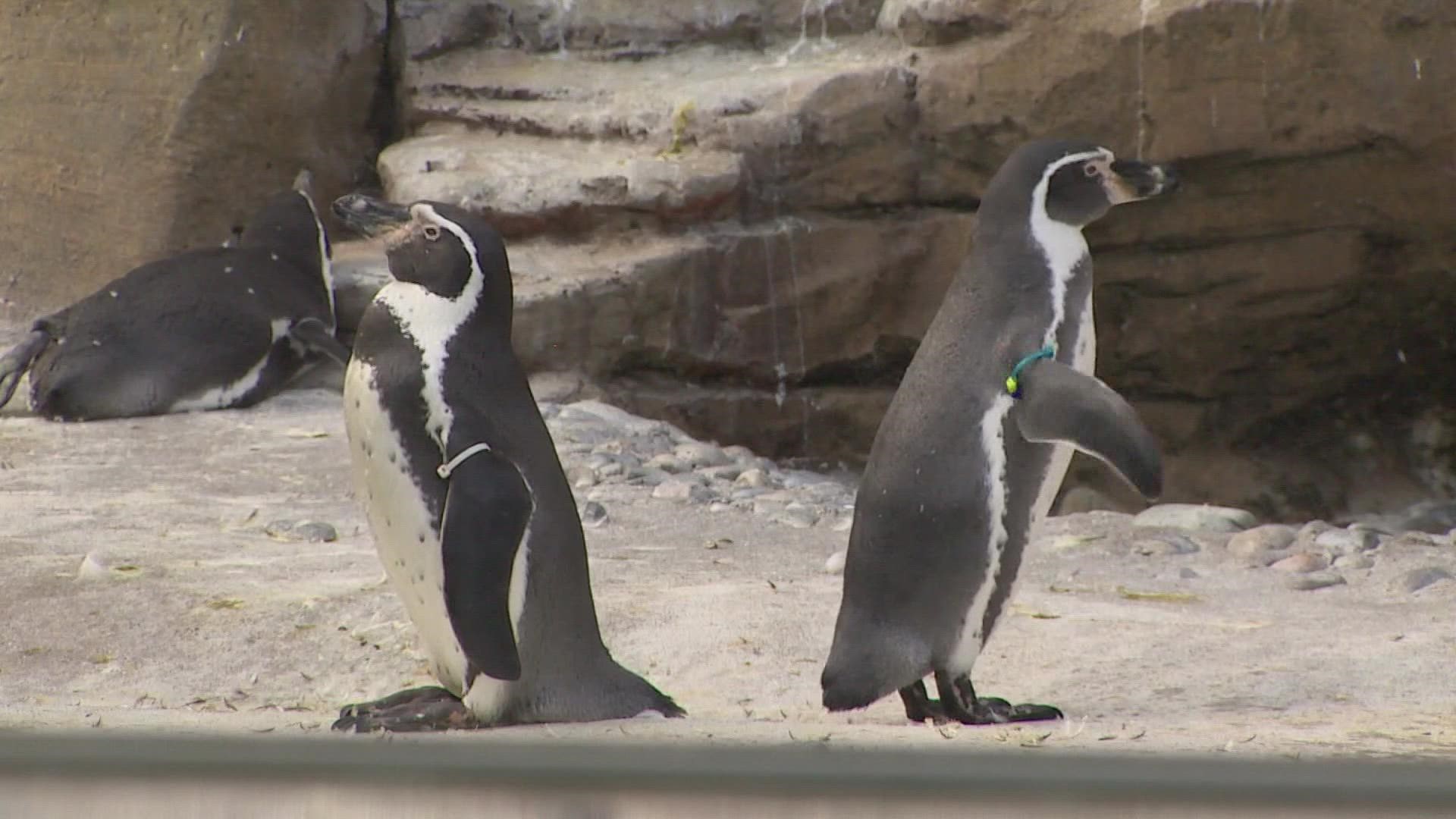SEATTLE — Avian influenza, also called bird flu, has infected birds across the United States, including more than 2,100 cases that have been detected in Washington state.
Highly pathogenic avian influenza (HPAI) was first detected in Washington on May 5 in a small backyard flock in Pacific County. HPAI is a strain of avian influenza (H5N1) that’s very contagious and deadly among chickens. The most recent case in Washington was detected in Kitsap County on Aug. 17, according to the Washington State Department of Agriculture (WSDA)
“There’s a particularly virulent strain this year that is causing a lot of fatalities in wild birds as well as domestics,” said Dr. Tim Storms, director of animal health at the Woodland Park Zoo.
While at least 32 backyard flocks have been affected in Washington state, the risk to people is very low.
The Woodland Park Zoo and the Washington State Fair are among those that have pulled most of their bird exhibits to protect the animals. The Point Defiance Zoo said in May it was also taking extra precautions and moved the most highly susceptible birds to off-exhibit covered areas.
“I come as a zoo walker on Tuesdays and Thursdays,” said Ellen Margrethe Beck.
Margrethe Beck is a zoo walker, which is a group of seniors that walk the zoo grounds multiple times a week. One of her favorite parts of the zoo is the duck exhibit.
“I just love the ducks because they are so beautiful, different colors and they eat different food," said Margrethe Beck. "And the caretaker there, he knows all their names. They’re gorgeous, their colors are all so different and you’d never see a duck like that anyplace else.”
The ducks are part of the temperate forest exhibit. The trail leading through the duck area has been closed to the public for months.
“An assessment of all the species and their enclosures in terms of risks to them and, in many cases, they were kept either indoors, inside or protected from traveling waterfowl mostly mallards in our case,” Storms said. “We take this disease seriously, but we’re constantly balancing the risk to animals with their well fair and their quality of life and making sure their lives are as good as they can be in this situation given risks.”
Woodland Park Zoo staff are constantly evaluating the risks and rewards of which exhibits are open and which are being held back for safety, Storms explained. The penguins, for example, are in the process of molting, which has an effect on their immune systems.
Storms’ team decided the more confined space used behind the scenes to house the penguins was adding extra risk for other illnesses to spread amongst the waddle, so they let them back out into the exhibit area.
“The penguins are a great example of diving in and, no pun intended, making sure that the ongoing risks to their health are balanced with the risk of infection out there,” he said.
“It’s great to see [the penguins] back out, the ones that have been let out,” said Margrethe Beck.
One of the main concerns with bird flu is domesticated chickens.
In May, the WSDA urged bird owners to skip fairs and exhibitions until “until 30 days after the last confirmed detection of HPAI in Washington state.”
“Reducing or eliminating contact between wild birds and domestic flocks and practicing good biosecurity is the best way to protect domestic birds from this disease,” the WSDA said in a press release. “Bird owners should bring their flocks inside or undercover to protect them from wild waterfowl.”
The WSDA shared resources on its website for chicken owners on what to look out for and how to protect their flock.

